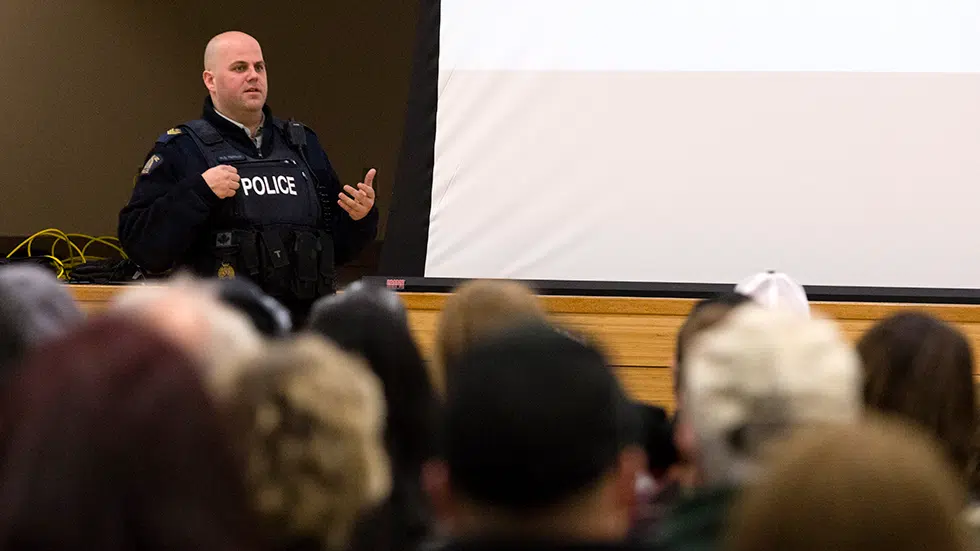
Property defence and pot discussed at Big River RCMP town hall
RCMP in Big River met with roughly 100 community members and discussed a wide array of topics including property-defence, pot and the rural Protection and Response Team.
Officers from the community hosted the town hall meeting to inform the public of their upcoming plans, share statistics and answer questions about policing in the area.
Property and the protection of personal belongings dominated the question period. Following the trial of Gerald Stanley, who was acquitted of second-degree murder in the 2016 shooting death of Colten Boushie Feb. 9, people had many questions about their rights to defend personal property. Officers told attendees they must be able to justify the level of force they used in a court of law, and repeatedly stressed the need to call for assistance before resorting to using firearms.
Detachment Commander Sgt. Marcus Paddock said the town hall meeting served as an educational tool for residents in the region.


